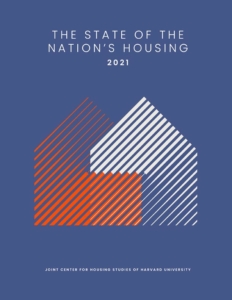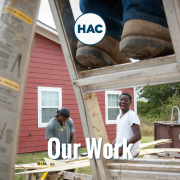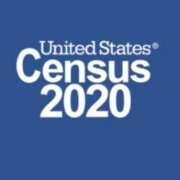Updated Sept. 14 – Rural Rental Housing and Repairs for Homeowners Included in Draft Bill
UPDATE September 14, 2021 – More rural housing funding has been added to the House Financial Services Committee’s portion of the reconciliation package. It now includes:
- $4.36 billion for new construction, rehabilitation, and preservation of Section 515 rental housing and Section 514/516 farmworker housing;
- $200 million for Section 521 Rental Assistance;
- $70 million in budget authority for Section 502 direct homeownership loans (estimated to support loans totaling about $3.7 billion);
- $95 million for Section 504 repair grants; and
- $25 million for Section 523 self-help.
The bill sets no time limits for spending most of these funds, although the Rental Assistance money would expire on September 30, 2024.
Funding for HUD’s Self-Help Homeownership Opportunity Program (SHOP) was also added when the draft was revised. An additional $50 million would be available for SHOP over 10 years. As noted below, the bill provides substantial new funding for numerous HUD programs.
The Financial Services Committee began its consideration of the bill on September 13 and is continuing on September 14. The markup session will also consider a bill to reauthorize the Native American Housing Assistance and Self-Determination Act (NAHASDA), which would establish a new annual 5 percent setaside for tribes under USDA’s Section 502, 504, 515, 533, and 538 programs, as well as the Rural Utilities Service programs.
The Financial Service Committee’s portion of the reconciliation bill will be combined with pieces from other committees to create the full $3.5 trillion package. The House is expected to approve it. Then it will be considered in the Senate, where it needs only a majority vote to pass, but it is not yet clear whether enough Senators will vote for it.
September 9, 2021 – Congress’s $3.5 trillion reconciliation package includes $5 billion for USDA’s rural rental housing programs and $100 million for repairs to rural owner-occupied homes. The House Financial Services Committee released legislative text on September 9, providing details that were not previously available.
The $5 billion rural rental total would be used for new construction of Section 515 rental housing and 514/516 farmworker housing, and for preserving existing properties through the Multifamily Preservation and Revitalization program.
USDA’s Section 504 grant program, which covers the costs of health and safety repairs to owner-occupied homes in rural areas, would receive $100 million. These grants are usually available only to homeowners age 62 or older, but that age restriction would be waived for this pool of funds. The requirement that homeowners have very low incomes would remain in place.
The bill would also provide significant funding for numerous HUD programs including $35 billion for HOME and $8.5 billion for Community Development Block Grants. The colonias on the U.S.-Mexico border would receive a $1 billion setaside of CDBG funds.
The Financial Services Committee will mark up this bill on September 13. (At the same session the committee will also consider two other bills, one to assist renters in the wake of the Supreme Court’s invalidation of the federal eviction moratorium, and one to reauthorize the Native American Housing Assistance and Self-Determination Act.)
All funds appropriated through the reconciliation bill would be in addition to the usual annual funding for these programs. Congress has not completed work on USDA’s or HUD’s annual appropriations for fiscal year 2022, which begins on October 1, 2021. The year is likely to begin with a continuing resolution holding programs at their FY21 levels.


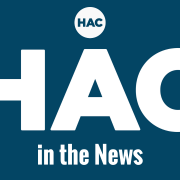
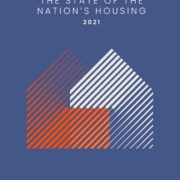 Harvard Joint Center for Housing Studies
Harvard Joint Center for Housing Studies